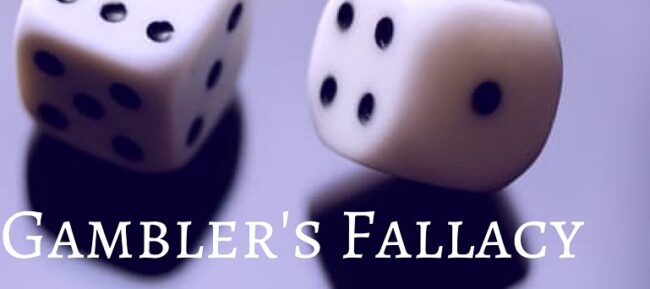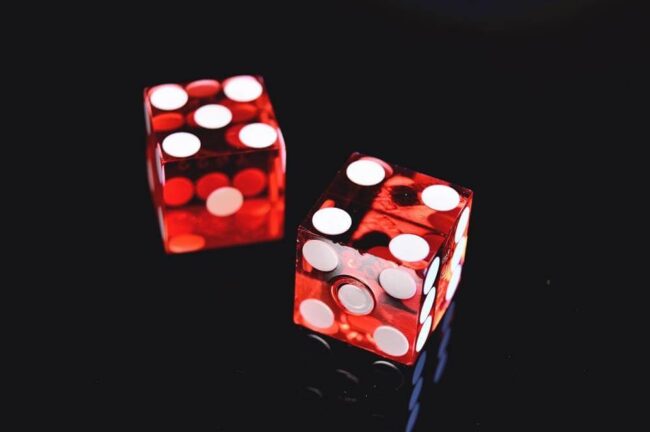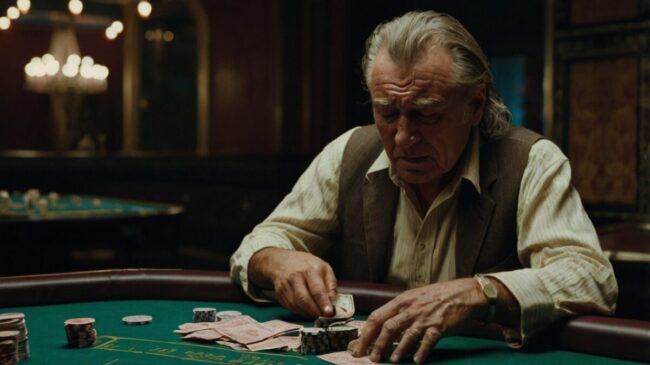The gambler’s fallacy is one of the most common traps in betting, and yet many still fall into it. Players believe that after a streak of similar outcomes, the opposite result must be “due.”
It’s a flawed way of thinking. This article will explain how it works, why it’s wrong, and how to spot it before it costs you money. We’ll also explore how modern betting platforms can help or hurt your decision-making process.
Key Highlights
- The gambler’s fallacy leads players to make irrational bets based on past events.
- Random outcomes do not follow patterns or “correct themselves.”
- Casinos and betting platforms profit from this psychological error.
- The fallacy affects gamblers, traders, and even everyday decision-making.
- Statistical independence is the key to understanding true probabilities.
- Smart bettors avoid this trap by focusing on odds, not streaks.
What Is the Gambler’s Fallacy?

The gambler’s fallacy is the mistaken belief that if something happens more frequently than normal during a given period, it will happen less frequently in the future—or vice versa. This fallacy assumes that outcomes in games of chance are somehow connected.
If a roulette wheel lands on red five times in a row, many players believe black must be next. They increase their bets, thinking the odds have shifted.
In reality, the probability of the next spin landing on black or red is exactly the same as it always is. Each event is independent.
This fallacy isn’t limited to roulette. It shows up in coin tosses, slot machines, lotteries, sports bets, and even the stock market. The human brain looks for patterns, even when none exist.
Why People Believe It
Most people trust their intuition more than they trust statistics. The mind hates randomness. It searches for logic and patterns, even when dealing with chaos.
Some reasons people fall for it:
- Pattern recognition: Humans are wired to see structure, especially in streaks.
- Desire for balance: People think luck needs to “even out.”
- Misunderstanding of probability: Many assume the universe corrects itself.
The brain confuses fairness with randomness. But games of chance have no memory. They don’t know what happened last round. They don’t care.
Why Past Results Don’t Matter
Each coin flip has a 50% chance of landing heads. Even after 10 heads in a row, the next toss is still 50%. The probability doesn’t shift.
In betting, that logic is crucial. When players ignore it, they lose.
Take roulette again. Even if red comes up 15 times in a row, the chance of red or black on the next spin is still roughly 48.6% (after accounting for the green zero). Nothing has changed.
Understanding statistical independence is essential:
- Each spin, toss, or draw is a fresh start.
- Prior outcomes have no effect on future ones.
- Expecting corrections is irrational.
Real-Life Example: The Monte Carlo Incident

One of the most famous cases occurred in 1913 at the Monte Carlo Casino.
The roulette wheel hit black 26 times in a row. Gamblers lost millions betting on red, expecting the streak to break. It didn’t.
The odds of 26 consecutive blacks? Around 1 in 67 million. Yet, it happened.
The Role of Betting Platforms
Modern betting platforms add to the illusion. They present past performance stats, streaks, and trends. Many players think these are predictive. They aren’t.
One platform where many fall into this trap is gg bet.
It offers a range of esports betting options, complete with match histories, win/loss streaks, and odds breakdowns.
While useful, these stats often mislead those chasing patterns instead of analyzing team performance, strategy changes, or roster shifts.
Numbers on a screen do not forecast outcomes. They inform. Smart users focus on matchup quality—not illusion.
How Casinos Profit From This Fallacy
Casinos thrive because people misjudge odds. When players fall for streak logic, they bet more aggressively. The house edge stays the same, but losses mount.
Slot machines use visual cues—like near misses or repeated symbols—to create a sense of control or inevitability. It’s engineered psychology. Players feel a “big win” is close. It’s not.
This illusion leads to poor bankroll management, desperation bets, and longer sessions. Casinos don’t need to rig outcomes. The fallacy does the work.
How to Avoid the Trap
Smart bettors protect themselves with a few simple rules:
- Stick to known probabilities.
- Avoid betting based on streaks.
- Never assume outcomes are due or overdue.
- Use logic, not emotion.
- Study relevant stats—like form, injuries, or team matchups.
- Practice discipline and manage your bankroll.
The key is to treat every outcome as isolated. Don’t build stories around numbers. Bet on facts.
Beyond Gambling – The Fallacy in Daily Life

The gambler’s fallacy doesn’t just show up in casinos. It shows up in boardrooms, classrooms, relationships, and bank accounts. Many people carry this mental trap with them without ever realizing it.
The core of the fallacy is false pattern recognition. It’s the idea that the universe owes balance. That good must follow bad. That streaks will “correct.” This thinking influences decisions in critical areas of life—and often backfires.
Hiring Decisions
You’ve had a string of poor hires. Maybe one lied on their resume. Another didn’t show up on time. A third underperformed. Now you’re reviewing a fresh application and telling yourself: “We’ve hired four bad employees. The next one must be a good one.”
Wrong.
The next hire is not better just because the last ones were worse. Quality depends on skills, vetting, interviews, and actual performance—not the hiring record before them.
If your recruitment process is flawed, it will continue to deliver poor outcomes no matter how many “bad ones” came before.
Reality check: Every candidate must be evaluated independently. Prior outcomes do not improve your odds unless you’ve actually changed your approach.
Dating Decisions
You go on five terrible dates in a row. One ghosted you, one insulted the waiter, and one talked about an ex the whole night. You start to believe a great date is right around the corner. “I’ve had enough bad luck—I’m due for a good one.”
No, you’re not.
That kind of thinking encourages settling. You may ignore red flags, lower your standards, or overvalue minor positive traits just because you’re tired of disappointment. The fallacy turns hope into blind optimism.
The fix: Focus on better filtering, clearer communication, and realistic expectations—not a supposed turn in romantic luck.
Investing and Trading

You’re watching a stock tumble for five straight days. Emotions kick in. “It has to bounce tomorrow.”
Again, no.
The stock does not care about your expectations. Market forces respond to supply, demand, earnings, sentiment, and macroeconomic events.
A drop today says nothing about tomorrow. Believing in a rebound just because of past losses invites further risk.
Key takeaway: Make decisions based on current fundamentals, not emotional bias or wishful timelines.
Lotteries and Random Draws
You’ve been playing the same lottery numbers for years. Nothing. Not even a small win. Now you feel it: “My numbers are due.”
They’re not.
Every lottery draw is random. Your chances haven’t improved because of past losses. That belief is emotional—not statistical.
The truth: Persistence doesn’t improve odds in random systems. It only deepens investment in a fallacy.
When people let the gambler’s fallacy shape their choices, they invite irrational behavior. It leads to overconfidence, poor judgment, and disappointment.
Each decision—whether hiring, dating, investing, or playing games of chance—must stand alone. Past patterns don’t guarantee future changes. Thinking otherwise leads straight into the trap.
Emotional Triggers Behind the Fallacy

People chase wins. When they lose repeatedly, frustration takes over. The fallacy offers hope. It fuels the idea that persistence leads to reward.
But persistence without logic is dangerous. Emotional betting clouds judgment. The best way to combat that is with knowledge.
Remind yourself:
- Odds don’t care how long you’ve waited.
- Randomness can’t be controlled.
- The past is not a roadmap for the future.
Conclusion
The gambler’s fallacy is a costly illusion. It tricks players into thinking that luck runs on a schedule. It doesn’t. Every spin, toss, and draw is independent.
To stay sharp:
- Ignore streaks.
- Focus on real variables.
- Think like a strategist—not a dreamer.
Whether you’re at the casino, betting online, or making everyday decisions, remember: the universe doesn’t keep score.
Don’t let your mind invent patterns where none exist. Bet smart—or don’t bet at all.
